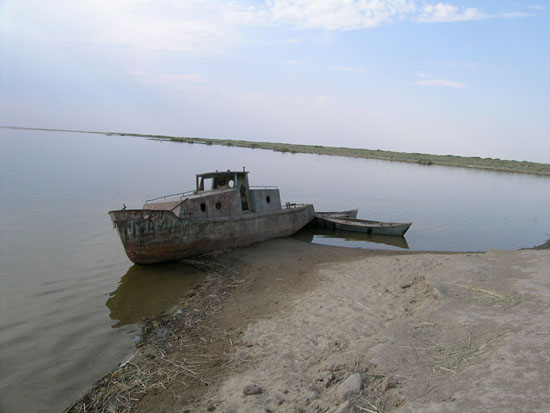The ethical dimension of tackling climate change
By Stephen Gardiner
20 October 2011 Sometimes the best way to make progress on a problem is to get clearer on what that problem is. Arguably, the biggest issue facing humanity at the moment is the looming global environmental crisis. Here, the problem is not that we are unaware that trouble is coming. After all, the basic science is both well known and continually being reiterated in major national and international reports. Rather, the core problem is that thus far effective action seems beyond us. We seem at best paralyzed, and at worst indifferent. Put starkly, there seems little place within our grand institutions and busy lives for what may turn out to be the defining issue of our generation. Why? In my view, at the heart of the matter is the fact that humanity is in the grip of a profound ethical challenge that our current institutions and theories are ill-equipped to meet. Sebastian Junger’s book The Perfect Storm tells the story of a fishing boat caught at sea during the rare convergence of three independently powerful storms. Similarly, the global crisis of climate change brings together three major challenges to ethical action — and in a mutually reinforcing way. It is genuinely global, profoundly intergenerational, and occurs in a setting where we lack robust theory and institutions to guide us. Neglect of this perfect moral storm leads us to underestimate the climate problem and fail to appreciate the wider implications in predictable ways. Conventional wisdom identifies climate change as primarily a global problem. Wherever they originate, emissions of the main greenhouse gas (carbon dioxide) quickly become mixed in the atmosphere, affecting climate everywhere. According to the standard analysis, this makes climate change a traditional “tragedy of the commons,” played out between nation states that represent the interests of their citizens in perpetuity. In Garrett Hardin’s tragedy, each herdsman prefers the collective outcome where none over-consume — so that the commons is not overburdened. Nevertheless, when acting individually each prefers to over-consume himself, no matter what the others do — with ruinous results for all. In climate change, we are often told, states reason in the same way. Each prefers the collective outcome where none over-consume with carbon emissions — so that dangerous climate change is avoided. Yet, when acting individually, each prefers to over-consume, no matter what the others do — so overconsumption is rife. In both cases, then, we are led to an outcome that no one wants, and which is severe enough to seem tragic. Unfortunately, this traditional model is at best dangerously incomplete. To begin with, it ignores one central spatial aspect of the climate problem. Those least responsible for past emissions are likely to suffer the most serious impacts (at least in the short- to medium-term). This is partly because the poorer nations are disproportionately located in more climate-sensitive regions, but it is also because, being poor, they lack the resources available to the rich to address negative impacts. Since it ignores this basic problem of fairness, the traditional model underestimates the nature of the relevant “tragedy.” Even more importantly, the traditional model obscures the temporal aspect of the perfect moral storm. Once emitted, a substantial proportion of climate emissions typically remain in the atmosphere for hundreds of years, and some persist for tens — even hundreds — of thousands. This means that the current generation takes benefits now, but spreads the costs of its behavior far into the future. Worse, many of these benefits are comparatively modest (e.g., those of bigger and more powerful vehicles), and many of the projected costs are severe, even catastrophic (e.g., severe flooding and famine). Worse still, the problem is iterated: The same temptation to take modest benefits now even in the face of severe costs to the future is repeated for subsequent generations as they come to hold the reins of power. Hence, there are cumulative impacts further in the future. Worst of all, such impacts may eventually provoke the equivalent of an intergenerational arms race. Perhaps some future generations will face such appalling environmental conditions that they are entitled to emit more in self-defense, even foreseeing that this behavior makes matters even worse for their successors. And so it goes on. […]
The Ethical Dimension of Tackling Climate Change via Richard Pauli

A perfect storm of ethics means there is no moral solution. There MAY be real and valid solutions somewhere.